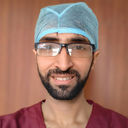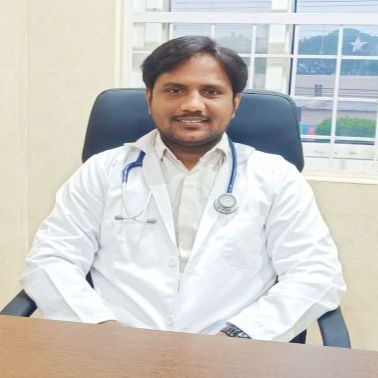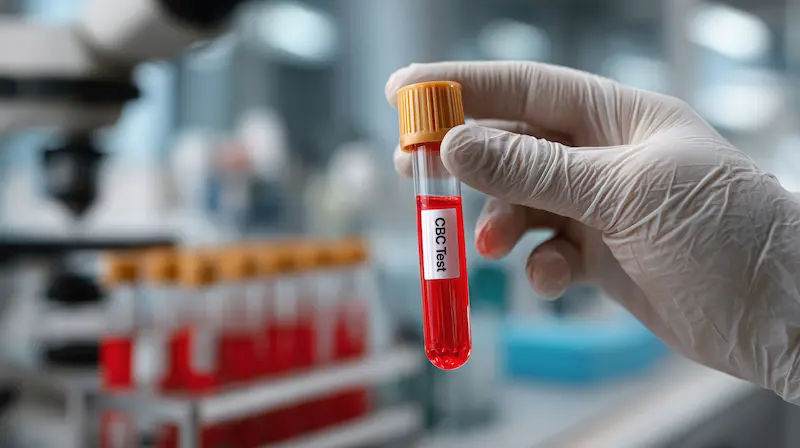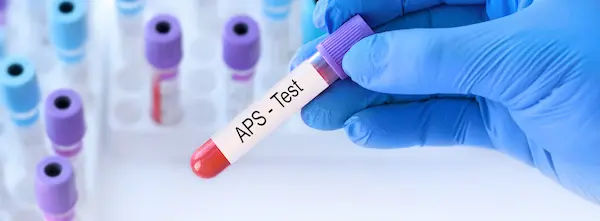New Blood Test for Heart Disease Detection
Know about the New blood test for heart disease, who should take it and how to use it. Learn about the tips for keeping heart disease at bay.


Introduction
Heart disease remains one of the leading causes of death worldwide, but early detection can save lives. Thanks to advancements in medical science, a new blood test has been developed to detect heart disease more accurately and efficiently. If you or a loved one is concerned about heart health, this article will help you understand how this test works, why it matters, and what steps you can take next.
What Is This New Blood Test?
Traditionally, diagnosing heart disease involves multiple tests like ECGs, stress tests, or angiograms—some of which can be invasive or time-consuming. However, this new blood test offers a simpler, quicker, and less invasive way to assess heart disease risk.
The test measures specific biomarkers (substances in the blood) that indicate heart stress, inflammation, or damage. Some of these biomarkers include:
- High-sensitivity troponin (hs-TnT) – Detects even tiny amounts of heart muscle damage.
- B-type natriuretic peptide (BNP) – Helps identify heart failure.
- C-reactive protein (CRP) – Measures inflammation linked to heart disease.
By analysing these markers, doctors can detect early signs of heart disease before symptoms become severe.
Who Should Consider This Test?
This blood test is especially helpful for:
- People with risk factors (high blood pressure, diabetes, obesity, smoking, family history of heart disease).
- Those experiencing symptoms like chest pain, shortness of breath, or fatigue.
- Individuals with a history of heart disease need regular monitoring.
- Anyone over 40 looking for a preventive heart health check.
Get Your Symptoms Assessed
Benefits of the New Blood Test
The benefits of the New Blood test for heart disease include:
1. Early Detection – Catches heart disease before major damage occurs.
2. Non-invasive – No needles, catheters, or radiation—just a simple blood draw.
3. Quick Results – Faster than traditional imaging tests, helping doctors make timely decisions.
4. Personalised Care – Helps tailor treatment based on individual risk levels.
Consult Specialist Cardiologist for healthy living.
How to Prepare for the Test?
A few tips to prepare for the new blood test include:
- Fasting may be required (your doctor will advise if needed).
- Stay hydrated for easier blood collection.
- Inform your doctor about any medications you take.
What If the Test Shows a Problem?
If your results indicate a higher risk, don’t panic. Early detection means you can take action to protect your heart. Your doctor may recommend:
- Lifestyle changes (diet, exercise, quitting smoking).
- Medications to control cholesterol, blood pressure, or diabetes.
- Further tests (like an echocardiogram or stress test) if needed.
Tips for a Healthy Heart
Prevention is always better than a cure. Here are some ways to keep your heart strong:
- Eat a heart-healthy diet – More fruits, vegetables, whole grains, and lean proteins. Less salt, sugar, and processed foods.
- Exercise regularly – Aim for 30 minutes of moderate activity (walking, swimming) most days.
- Manage stress – Practice meditation, deep breathing, or hobbies you enjoy.
- Quit smoking – Smoking damages blood vessels and increases heart disease risk.
- Monitor blood pressure & cholesterol – Regular check-ups help catch problems early.
When to See a Doctor?
If you experience the below symptoms, see a doctor immediately:
- Chest pain or discomfort
- Shortness of breath
- Unexplained fatigue
- Dizziness or fainting
Do not ignore these signs. Early intervention can prevent serious complications
How to Get Tested
If you’re interested in this new blood test for heart disease detection, you can easily book a consultation or schedule the test through Apollo 24|7. Their expert cardiologists will guide you through the process and help you understand your results.
Consult Specialist Cardiologist for healthy living.
Consult Specialist Cardiologist for healthy living.
Dr. Sibashankar Kar
Cardiologist
10 Years • MBBS, DNB
Bhubaneswar
Hi-Tech Medical College & Hospital, Bhubaneswar

Dr Krishna N D
Cardiologist
10 Years • MBBS, MD Physician, Post Graduate Diploma Clinical Cardio Physician
Dibrugarh
Apollo clinic Dibrugarh, Dibrugarh

Dr. Pinaki Nath
Cardiologist
8 Years • MBBS, MD General Medicine, DM Cardiology
Barasat
Diab-Eat-Ease, Barasat
Dr. Dixit Garg
Cardiologist
10 Years • MBBS , DNB (General medicine) , DNB (cardiology)
Gurugram
Smiles & Hearts, Gurugram

Dr. Haider Shaik.
Cardiologist
5 Years • MBBS, MD (Pulmonology) DrNB (Cardiology)
Guntur
Kalam chest and multi-speciality clinic, Guntur
Consult Specialist Cardiologist for healthy living.
Dr. Sibashankar Kar
Cardiologist
10 Years • MBBS, DNB
Bhubaneswar
Hi-Tech Medical College & Hospital, Bhubaneswar

Dr Krishna N D
Cardiologist
10 Years • MBBS, MD Physician, Post Graduate Diploma Clinical Cardio Physician
Dibrugarh
Apollo clinic Dibrugarh, Dibrugarh

Dr. Pinaki Nath
Cardiologist
8 Years • MBBS, MD General Medicine, DM Cardiology
Barasat
Diab-Eat-Ease, Barasat
Dr. Dixit Garg
Cardiologist
10 Years • MBBS , DNB (General medicine) , DNB (cardiology)
Gurugram
Smiles & Hearts, Gurugram

Dr. Haider Shaik.
Cardiologist
5 Years • MBBS, MD (Pulmonology) DrNB (Cardiology)
Guntur
Kalam chest and multi-speciality clinic, Guntur


.webp)

.webp)
